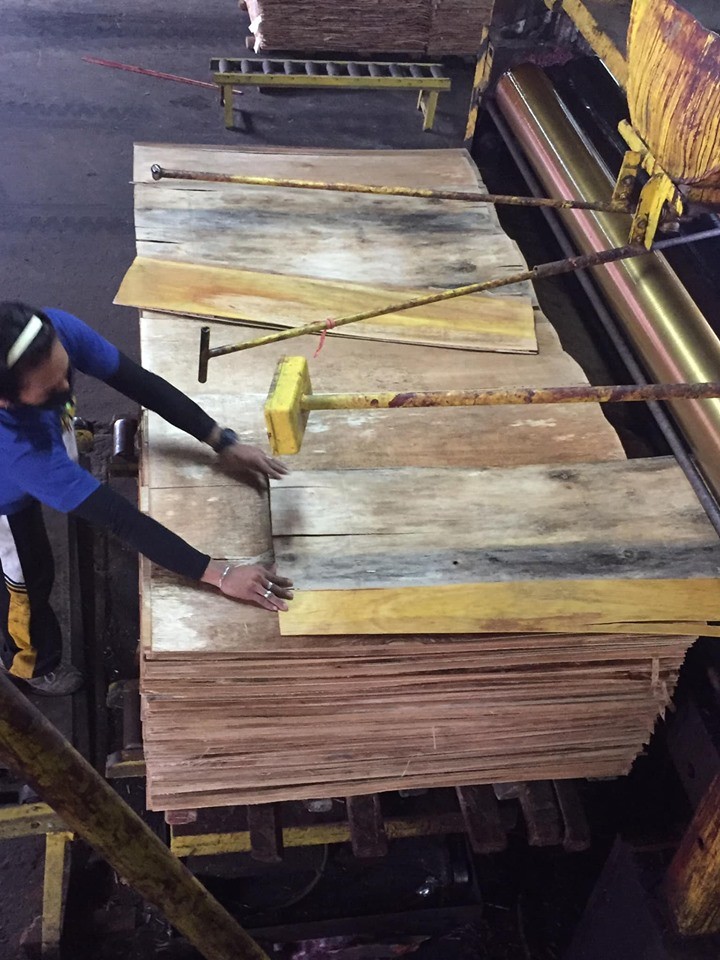Pinoy scientists develop organic glue from used tea leaves, tobacco stalk waste
By: Eldan Sambatyon
|
Published on: November 6, 2019

Spent tea leaves and tobacco stalks wastes have been utilized to create an adhesive that would result in safer plywood panels.
A plywood glue organic mixture made of spent tea leaves (STL) and tobacco dust additives developed by the Department of Science and Technology-Forest Products Research and Development Institute (DOST-FPRDI) has reached another level of development as it enters the pilot testing stage of the new product.
The new glue utilizing industrial waste products results in lessening the by-products of the tea drinks and tobacco industries while producing safer plywood panels.
The new glue is being tested in the manufacturing of plywood panels of Impasug-ong Integrated Wood Processing and Plywood Manufacturing Inc. (IM WOOD) through a Memorandum of Agreement signed between DOST-FPRDI Director Romulo T. Aggangan and IM Wood headed by President Maria Cristina Huang.
The test determines the effectiveness and adhesive capability of the glue mixture, and also includes the glue’s cost-effectiveness, which determines the amount of glue and money that can be saved on the usage of a standard size
four by eight panels.

The MOA signing led by IM Wood President Maria Cristina Huang (in pink) and DOST-FPRDI Director Romulo T. Aggangan (in white polo shirt) will allow the new organic plywood glue to be tested for a year. Credits to DOST.
Project Leader Engr. Juanito P. Jimenez Jr. announced the year-long testing of the adhesive, saying, “We will test if the plywood produced will pass national and global standards for shear strength, formaldehyde emission and termite resistance. Formaldehyde is a chemical compound found to cause certain types of cancer in humans.”
Studies made by Jimenez, Dr. Erlinda L. Mari and Rebecca B. Lapuz in 2014 and 2018 have proven that STL and tobacco stalks are affordable and environment-friendly extenders and fillers to plywood adhesive, replacing the commonly used wheat and rice hull flour.
“Fillers are used to cover up holes and cracks on the veneer surface, improving its strength and durability. Extenders, on the other hand, are substances mixed with the glue to reduce the amount of primary binder used,” explained Jimenez.
According to the study, STL – an industrial waste product – has the ability to trap excess formaldehyde gases from plywood, thus resulting in safer panels. The tea-flavored drinks industry across the country generates around 18,000 kilos of STL every day.

Pilot production of plywood using tobacco particles in Sariaya, Quezon. Credits to National Tobacco Administration.
Tobacco stalks, meanwhile, can repel termites and also lessen formaldehyde emission. The National Tobacco Authority estimates that the country’s tobacco waste is around 45 million kilos every year.
“We are positive that our research will create productive uses for these two waste products,” ended Jimenez. The pilot testing, which starts this October, will run for a year, with production and validation tests conducted in the IM WOOD factory in Bukidnon.
DOST continues to innovate on the use of agricultural products, among them, the enhancement of Bamboo Musical Instruments and enhancement of mat weaving technologies.
SEND congratulations in the comments below to DOST and its partners for innovating on Philippine products!
Like, Follow, Subscribe to GoodNewsPilipinas.com Facebook, Twitter, Instagram, Good News Pilipinas! TV on YouTube, new story notifications and e-mail newsletters for updates on more Filipino Pride stories.